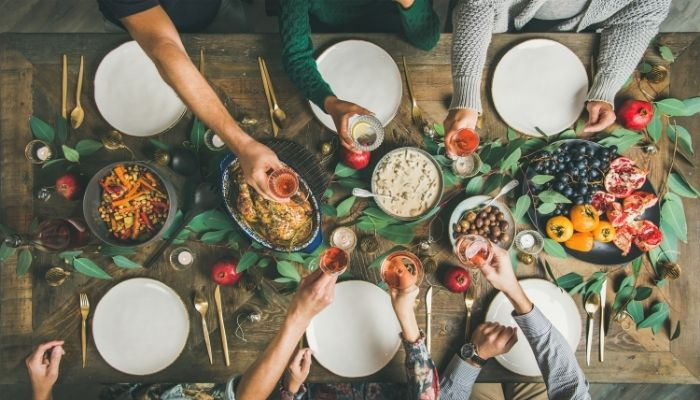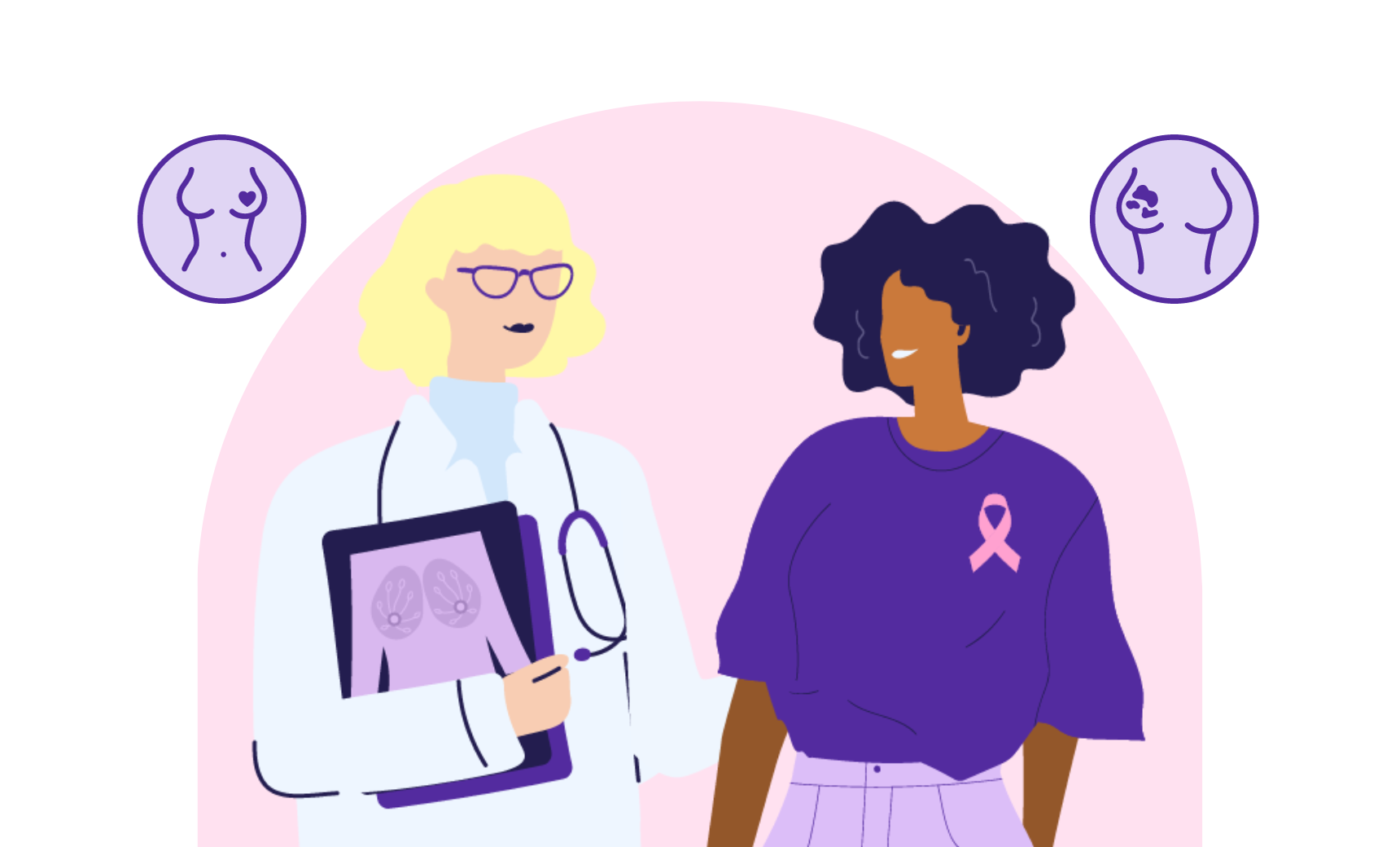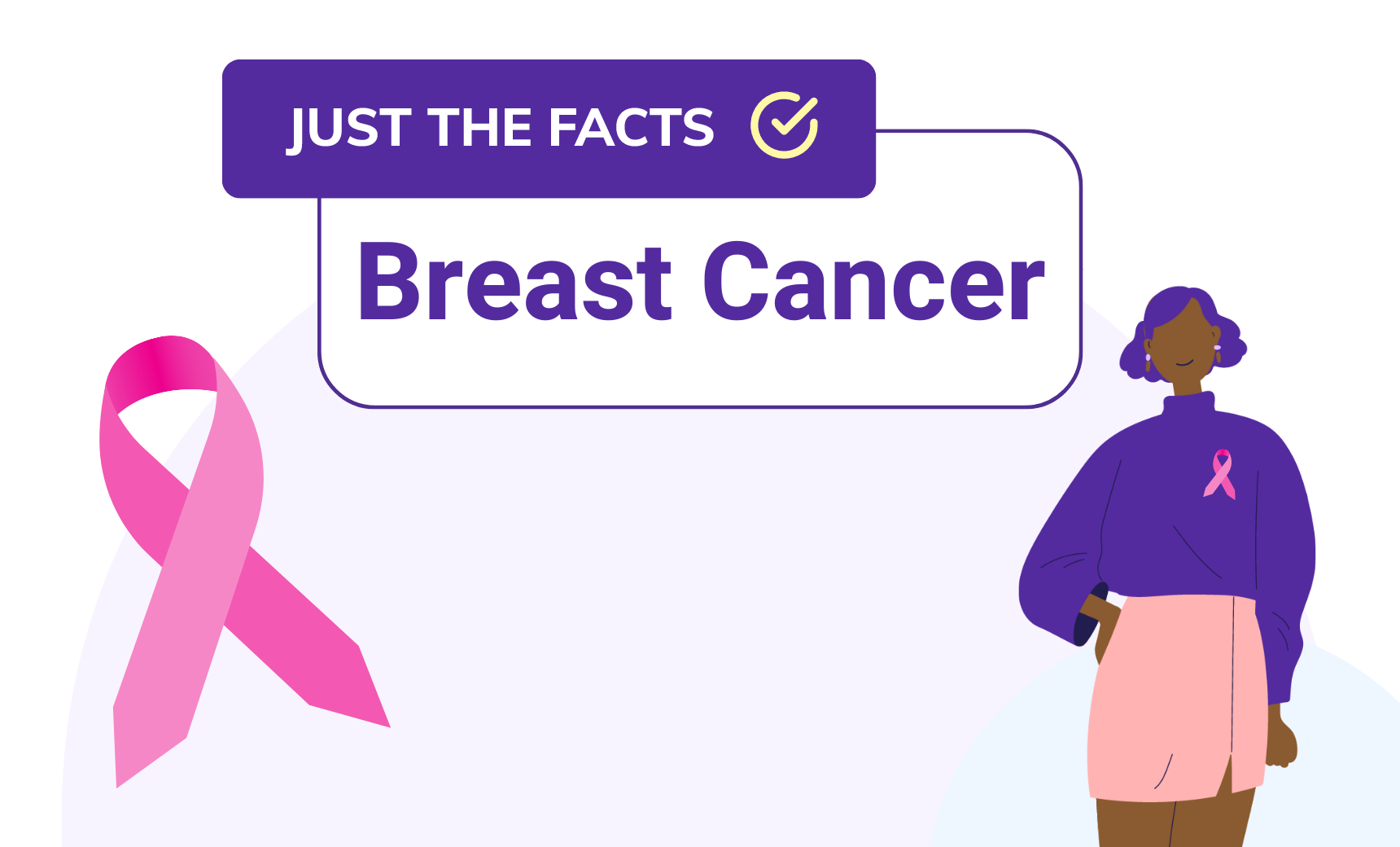
Six Tips for a Diet-Friendly Holiday Meal
There’s always a lot to look forward to about the holidays. Spending time with family, giving and receiving gifts, and one of our personal favorite parts – say it with us now – the food! There’s just no better way to enjoy the company and fellowship of loved ones than gathering around a big meal. Unfortunately, the holiday feast can be a real minefield if you’re trying to watch your waistline after packing on a quarantine fifteen earlier in the year. Many of the holiday staples are high in fat and sugar, and the temptation can be overwhelming to overeat during your yuletide banquet.
Here are six tips to help you enjoy your holiday meal this year without blowing up your healthy diet.
1. Eat Breakfast First
It might seem like a reasonable choice to skip breakfast when you know you’re going to be having a big meal later in the day, but it’s really important to eat something earlier on in the day. If you starve yourself until time for the feast, you’re much more likely to pile your plate high and overeat during your holiday dinner. Studies have shown that people who eat a healthy breakfast are likely to actually eat fewer, not more, calories throughout the day. Having something simple and healthy like fruit or cereal earlier in the day can help mitigate your appetite for later.
2. Make Sure There Are Healthy Options
It’s so important to make sure that you can balance your meal with healthy foods so you’re not just gorging yourself on stuffing and gravy. If you’re concerned that there won’t be enough nutritious options available, prepare something yourself, like brussels sprouts or roasted broccoli. When you sit down to dinner, try filling half your plate with healthier options so you don’t completely fill up on fattier fare.
3. Take It Slow
No need to shovel it all in at once! Take some time to savor each bite. The signal from your stomach that you’re full can take up to twenty minutes to reach your brain, so it’s smart to go at a deliberate pace. Start with a smallish portion and then when that’s gone, drink a glass of water and enjoy some conversation with your loved ones before going back for seconds. Even the size of your dishes may be a factor – smaller plates mean smaller portions and less chance of eating too much.
4. Drink in Moderation
Alcohol is part of many holiday traditions, and it’s okay to enjoy a glass of wine or eggnog with your Christmas dinner, but make sure not to overdo it. Drinking too much is something you’re sure to regret later, both because of the inevitable hangover, because drinks like beer are high in calories, and because getting drunk makes you less likely to make smart decisions about what you eat. If you’re going to drink during your holiday meal, try to alternate each alcoholic beverage with a glass of water or seltzer.
5. Make Sure to Move
Getting some exercise is a great way to balance out a big meal. Try to make a holiday tradition of going for a walk or playing a game like a touch football in the yard to get your blood pumping and work off some of that feast. If you’re enjoying a white Christmas, shoveling snow is another great way to get your heart rate up. “The itis” can be tough to overcome, but you can do a lot to balance out a big dinner by not melting into a food coma immediately afterward.
6. Don’t Overthink It!
Keeping all of this in mind, it’s important to also remember that this is supposed to be a happy occasion. 2020 has been brutally difficult for many of us, and you should make sure to give yourself a chance to relax and enjoy the time with the people you love. Try to make healthy decisions, but don’t let them get in the way of having a good time. You can be responsible without skipping dessert or foregoing your favorite holiday treats. Be smart, but don’t stress. From all of us at LabFinder, we hope that you and yours have a safe and happy holiday.




Brian Tidal
The LabFinder Editorial Team is behind The Illuminator and The Insider, LabFinder’s consumer and business blogs.
Dr.Robert Segal
Dr. Segal is CEO and co-founder of LabFinder, as well as a board-certified cardiologist. He began practicing medicine in 2002 and has founded several businesses, including Medical Offices of Manhattan and Manhattan Cardiology.